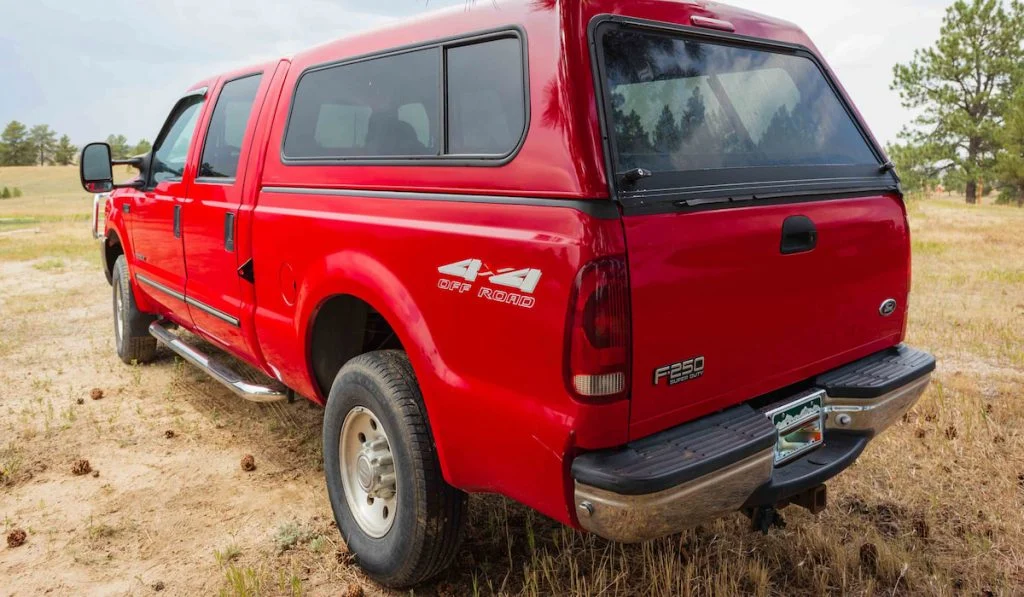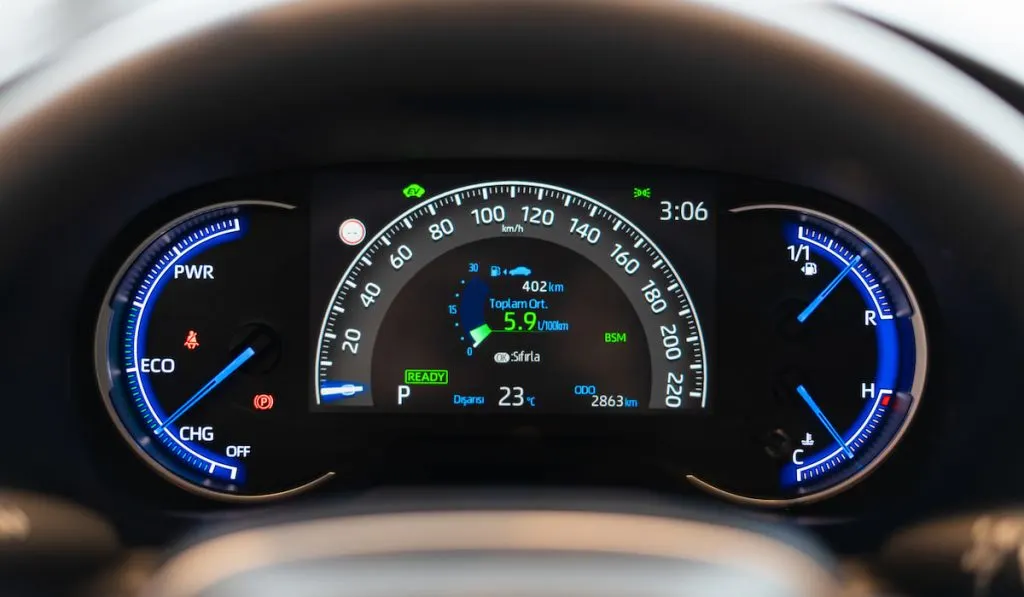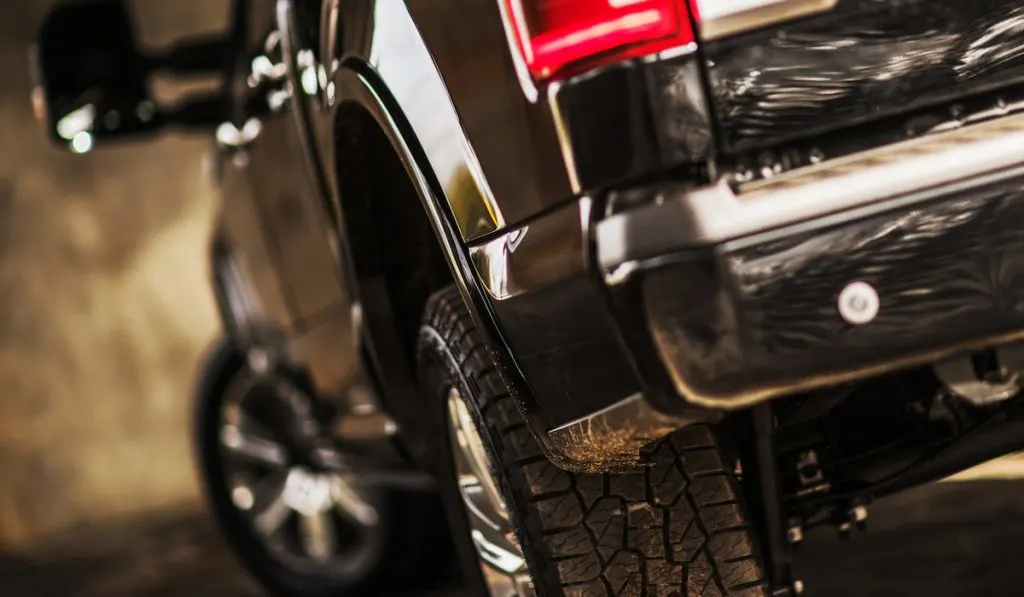No one turns down the chance to improve their gas mileage. With improved gas mileage, you can travel more efficiently and spend less on fuel – it’s a no-brainer!
While trying to improve gas mileage, some truck owners install truck toppers. The rationale is that the truck caps will improve the truck’s aerodynamics, reducing drag. But does this really do much?
Do truck toppers affect gas mileage?
Truck toppers may affect gas mileage. However, their effect on gas mileage may not be as imagined. Truck toppers may not improve gas mileage. In fact, depending on how much they weigh, they may actually reduce your gas mileage.
In the rest of this article, we go over details of the effects of truck toppers on gas mileage. We also talk about various truths and myths about truck toppers.

Do Truck Toppers Affect Gas Mileage?
Truck toppers can affect gas mileage. Unfortunately, in most cases, their effect comes in the form of reduced gas mileage.
The negative influence on truck gas mileage by truck toppers comes from extra weight.
On average, truck toppers weigh around 170 pounds. Some can even weigh as much as 200 pounds. And as you may already know, increasing the weight on any vehicle will drive that vehicle to consume more fuel. Of course, increased fuel consumption equals reduced gas mileage.
Basically, when vehicles are heavier, they will need more propulsive force to cover their usual distances. To generate the needed force, they will have to work harder than they normally do. But then, as engines work harder, they consume more fuel.
There is an estimate that with every 100 pounds you add to your truck, gas mileage drops by around 1%. But since the upper weight limit of most truck toppers is around 200 pounds, truck toppers may only reduce gas mileage by 2-3% at the worst.
Of course, some truck toppers weigh 300-400 pounds or higher. So, to keep your gas mileage low, opt for lightweight truck toppers. Remember that the truck topper works to create extra space on the truck. So, if you finally place some load in the truck topper, the overall weight of the pickup truck would be even higher. Then gas mileage may drop further.
Ultimately, the effect of truck topper weight on your gas mileage depends on the efficiency of your truck. If your truck is highly-efficient, installing a truck topper may not affect gas mileage.
Do Truck Toppers Reduce Drag On Trucks?
Truck toppers may not reduce the drag on your truck. Even if they do, the effect on your truck would be insignificant.
By and large, the thought that truck toppers improve truck aerodynamics is mythical. So, do not expect a reduction in drag when you install truck toppers on your truck.

Can a Tonneau Improve Gas Mileage?
Tonneau covers can improve gas mileage. Unlike truck toppers, tonneaus have light construction. So, they do not add so much weight when installed on a truck.
Tonneaus and truck toppers can both be fiberglass or aluminum. But unlike truck toppers, tonneaus can be vinyl, polyester, canvas, and leather. So, you can get them very lightweight.
Besides not being weighty, tonneaus can improve the aerodynamics of a truck. With improved aerodynamics comes reduced drag. Reduction in drag means your truck sees less air resistance as it propels and ultimately consumes less fuel.
The lightness and aerodynamics of tonneaus help to maintain or improve gas mileage. So, you can get one for your truck in place of a truck topper.
You can retract, fold back, or raise some tonneaus. So, packing them when you do not need them is pretty straightforward.
Is a Truck Topper Worth It?
Truck toppers are worth it; they serve their primary purpose of providing extra space on trucks pretty well.
Truck toppers stand over the entire bed of the truck, creating space in a place where there was no space. They primarily provide space for cargo by adding extra height to the truck bed, but they can do more than that.
Truck toppers provide shelter against the elements. Ordinarily, some pickup trucks have open beds. So, whatever you place in these beds is open to the harshness of rain, snow, wind, and sunlight. But with truck toppers, you can carry payloads in the bed without worrying too much about the weather.
The protection from the elements offered by truck toppers is particularly handy with items sensitive to water and temperature.
For instance, if you were moving some electronics in the bed of your pickup, and it started raining, the rain would soak the electronics and ruin them. Of course, that is not desirable.
In another instance, imagine you were moving some cold drinks around on a hot day. If you leave them exposed to direct sunlight, they will lose their cool faster than if covered up.
Apart from providing shelter, truck toppers can serve as a living space. If you ever go camping with a truck topper on your truck, you might be able to sleep in the bed of the pickup.
Remember we said tonneaus have better effects on gas mileage than truck toppers? Well, truck toppers get one over tonneaus; truck toppers can serve as a living space while tonneaus cannot.
7 Ways to Improve Truck Gas Mileage
Maintain Your Tires at the Recommended Pressure

One way to improve your truck’s gas mileage is to ensure that the tires are always at the recommended PSI.
At the least, keeping the tires at the recommended pressure will ensure the truck gets its expected gas mileage. You may slightly overinflate the tires for even better gas mileage.
You should check the pressure in your tires regularly. This way, you will quickly detect when the pressure falls below the recommended PSI.
Keep Your Truck Topper Closed While Driving
When driving, keep your truck topper closed. If what you have is a tonneau, ensure you close it. Leaving your truck topper or tonneau open creates spaces for aerodynamic drag. So, obviously, if you close them, there will be little or no drag, and you can maintain good gas mileage.
Set Your Speed to Cruise Control
Your engine consumes more fuel when you accelerate than when driving at the same speed. So, driving at inconsistent speed will reduce gas mileage.
When driving, you will invariably change speed – accelerating and decelerating. This can reduce your gas mileage. But you can avoid it by driving in cruise control at the recommended speed limit or slower.
Do Not Use Oil That Is Too Viscous
The viscosity of the oil in your engine affects your oil pump efficiency. If your oil is too thick, the load on the pump will increase. And when this happens, your engine will consume more fuel, reducing gas mileage.
Always Plan Your Route Ahead
Always plan your route ahead. For one, drive at times when traffic is light, so you can avoid stop-and-go driving.
Also, if you have multiple locations to go to, work with the fastest route, and drive to everyone in one trip.
Try to Prevent Engine Idling
If you can keep your engine from idling for prolonged periods, you can improve gas mileage. Instead of using the drive-through in fast-food restaurants, pharmacies, and the like, you can use the parking spots.
Note that one minute of engine idling uses about the same fuel as starting the engine.
So, when you are at a stoplight for a short time, you can keep the engine running.
Travel Light When You Can
As we mentioned a few times already, the heavier your truck is, the more fuel its engine will consume, and the lower your gas mileage. So, if you travel as light as you can, you can improve your gas mileage.
Conclusion
While truck toppers offer extra space on pickup trucks, they can reduce gas mileage because of their weight. Nonetheless, if your truck is very efficient, the effect of a truck topper’s weight on your gas mileage will be minimal.
Resources
- https://howtruck.com/do-camper-shells-improve-gas-mileage/
- https://justdownsize.com/do-camper-shells-improve-gas-mileage/
- https://www.survivaltechshop.com/truck-topper-weight/
- https://amanandhisgear.com/do-truck-toppers-affect-gas-mileage
- https://amanandhisgear.com/are-truck-caps-worth-it
- https://www.jdpower.com/cars/shopping-guides/how-to-get-better-gas-mileage-in-a-truck
